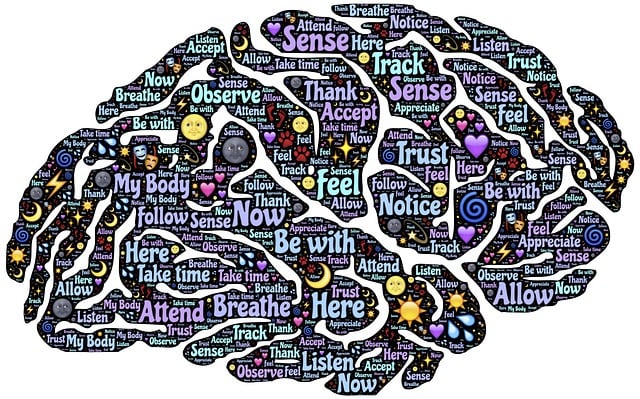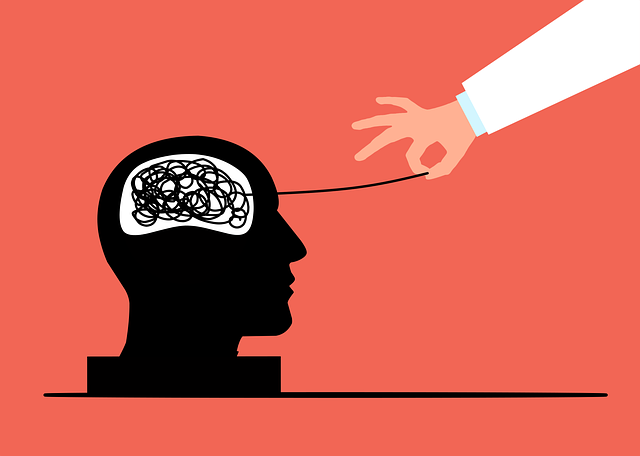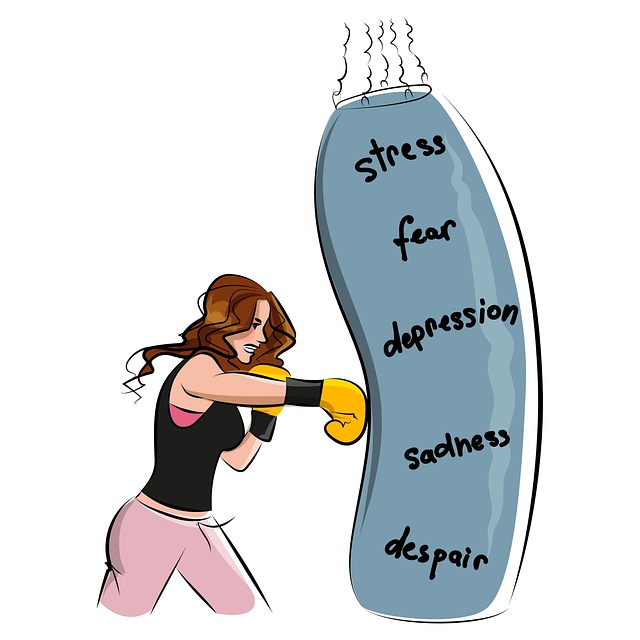Mental health support is increasingly demanded in today's fast-paced world, leading to the rise of digital solutions like Aurora Crisis Counseling Therapy. This app offers immediate, accessible counseling and emotional well-being techniques for managing conditions like anxiety from home. An effective Aurora Crisis Counseling app should provide a supportive platform with 24/7 access to trained counselors, evidence-based practices, and user-friendly features catering to vulnerable populations' unique needs. Prioritizing user privacy, security, cultural sensitivity, and marketing strategies are key to its success, ensuring it becomes a trusted resource for mental wellness support.
In today’s digital age, mental wellness app development is a game-changer. With rising mental health challenges, there’s a growing need for accessible solutions like Aurora Crisis Counseling Therapy apps. This article explores how such apps, based on the proven Aurora Model, offer crisis support and counseling at users’ fingertips. We delve into key features, user experience design considerations, privacy concerns, marketing strategies, and continuous improvement methods, providing insights for developing effective mental wellness tools.
- Understanding Mental Health and the Need for Digital Solutions
- Features and Components of an Effective Crisis Counseling App (Aurora Model)
- Designing User Experiences for Vulnerable Populations
- Privacy, Security, and Ethical Considerations in Mental Wellness Apps
- Marketing, Distribution, and Continuous Improvement Strategies
Understanding Mental Health and the Need for Digital Solutions

Mental health is a fundamental aspect of overall well-being, encompassing our emotional, psychological, and social state. It affects how we think, feel, and act in daily life, impacting our ability to cope with stress, make choices, and relate to others. In today’s fast-paced world, the demand for accessible and effective mental health support has never been higher. This is where digital solutions like mental wellness apps step in as powerful tools to bridge the gap between individuals seeking aid and the professional help they need.
With the rise of remote communication and a growing awareness of mental health issues, there is a pressing need for innovative approaches to care. Traditional therapy often involves significant barriers such as long wait times, high costs, and geographical constraints. Digital platforms, including apps like Aurora Crisis Counseling Therapy, offer a convenient and discrete way to provide Mental Wellness Coaching Programs and Emotional Well-being Promotion Techniques. These solutions can offer immediate support, particularly in managing acute conditions like anxiety (Anxiety Relief), allowing users to access therapy from the comfort of their homes.
Features and Components of an Effective Crisis Counseling App (Aurora Model)

An effective crisis counseling app, based on the Aurora model, should be meticulously designed to offer a supportive and accessible platform for individuals in distress. Key features include a user-friendly interface, allowing easy access to crisis resources and tools tailored to specific mental health needs. The app should incorporate real-time chat or call functions to facilitate immediate support from trained counselors, ensuring round-the-clock availability.
Additionally, integrating evidence-based practices such as cognitive behavioral therapy (CBT) techniques and mindfulness exercises can empower users with mental wellness tools. Promoting positive thinking through interactive features like journaling, gratitude lists, and motivational quotes aligns with the core principles of mind over matter. These components collectively contribute to a holistic approach in managing crises, offering users a sense of control and fostering resilience.
Designing User Experiences for Vulnerable Populations

When designing user experiences for vulnerable populations through apps like Aurora Crisis Counseling Therapy, it’s crucial to approach the interface and functionality with an understanding of their unique needs. These individuals often face challenges such as anxiety, depression, or trauma, requiring a thoughtful digital experience that offers support rather than adding stress. Incorporating simple, intuitive navigation and clear communication is essential; jargon-free language and easily accessible resources can significantly enhance usability for those seeking help during mental health crises.
Empathy building strategies play a vital role in these designs. Features like personalized feedback mechanisms, progress tracking tools, and even a mental wellness podcast series production within the app can foster a sense of agency and connection. By addressing burnout prevention alongside crisis management, these apps strive to provide holistic support tailored to at-risk users. Remember, effective user experiences cater to both practical needs and emotional vulnerabilities, ensuring accessibility and comfort for all who need them.
Privacy, Security, and Ethical Considerations in Mental Wellness Apps

In the realm of mental wellness app development, ensuring privacy, security, and ethical considerations is paramount. Users, such as those seeking Aurora Crisis Counseling Therapy, entrust their most intimate thoughts and feelings to these digital tools. Developers must implement robust data protection measures, including end-to-end encryption, secure storage, and strict access controls to safeguard sensitive information from unauthorized access or breaches. Transparency regarding data usage is crucial; apps should clearly communicate how personal details are collected, stored, and shared, ensuring user consent and control.
Ethical considerations extend beyond privacy. Cultural sensitivity in mental healthcare practice is essential, as these apps may cater to diverse user populations. Developers must be mindful of the potential cultural biases that could inadvertently affect therapy or self-care practices (e.g., through language choices or content). Moreover, promoting public awareness campaigns development within these apps can encourage users to engage in healthy self-care practices, fostering a holistic approach to mental wellness.
Marketing, Distribution, and Continuous Improvement Strategies

Marketing plays a pivotal role in the success of any mental wellness app, and Aurora Crisis Counseling Therapy is no exception. Leveraging digital marketing strategies such as social media campaigns, influencer partnerships, and targeted online ads can significantly increase visibility and attract users seeking support. Engaging content, including blog posts, videos, and testimonials, can build trust and establish the app as a reliable resource for mental wellness. Integrating SEO best practices ensures that potential users can easily discover the app through search engines like Google.
Distribution channels are equally important. Offering the app on popular platforms such as Apple App Store and Google Play ensures widespread accessibility. Collaborating with mental health organizations, healthcare providers, and community outreach programs like Mental Health Education Programs Design can expand reach further. For instance, integrating Mental Wellness Journaling Exercise Guidance within the app and promoting it through Community Outreach Program Implementation can tap into new user groups. Continuous improvement is key; collecting user feedback, analyzing usage data, and regularly updating features based on market trends and user preferences are essential strategies to keep the app relevant and engaging.
The development of mental wellness apps, such as the Aurora Crisis Counseling Therapy model, offers a promising digital solution to address growing mental health concerns. By incorporating evidence-based practices and user-centric designs, these applications can provide accessible and discrete support to individuals in need. As technology advances, prioritizing privacy, security, and ethical standards is paramount to gaining public trust. Effective marketing strategies and continuous improvement based on user feedback will be key to ensuring these apps reach their target audiences and make a positive impact on mental wellness globally.














